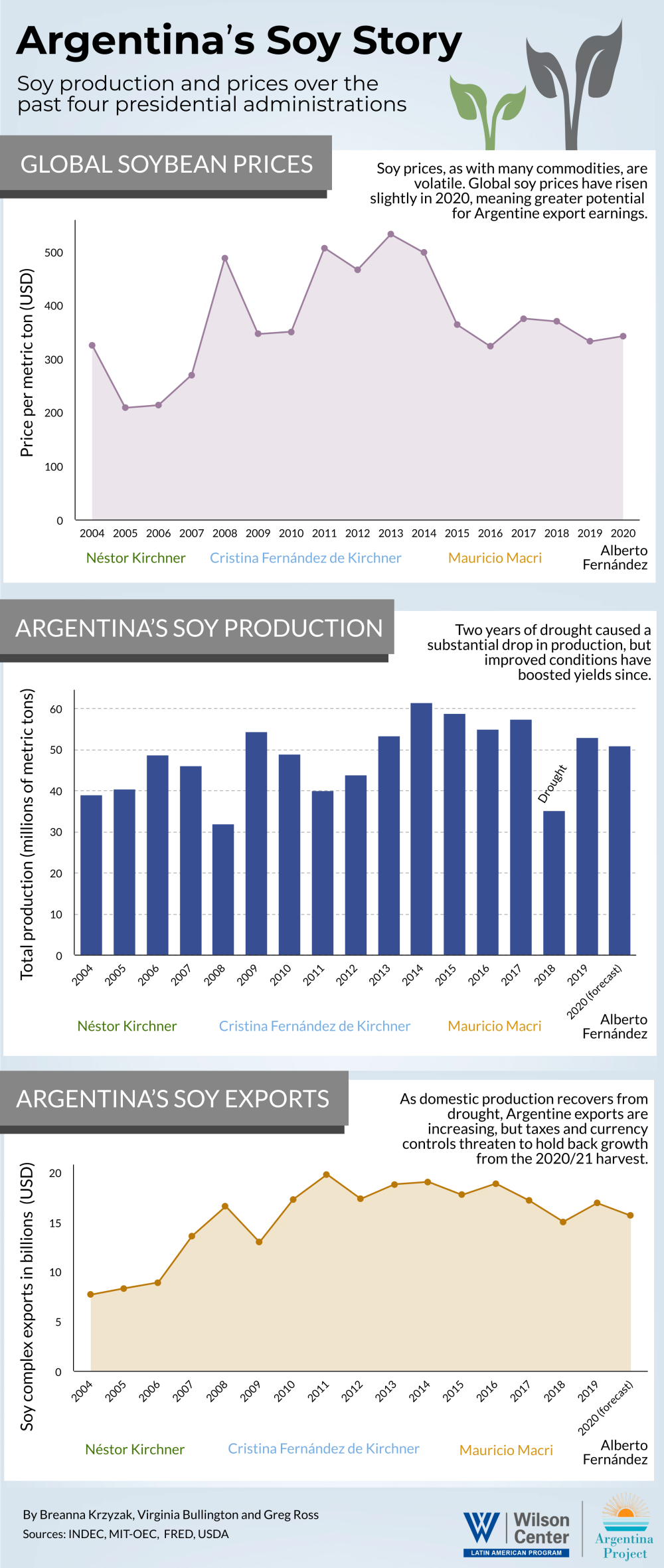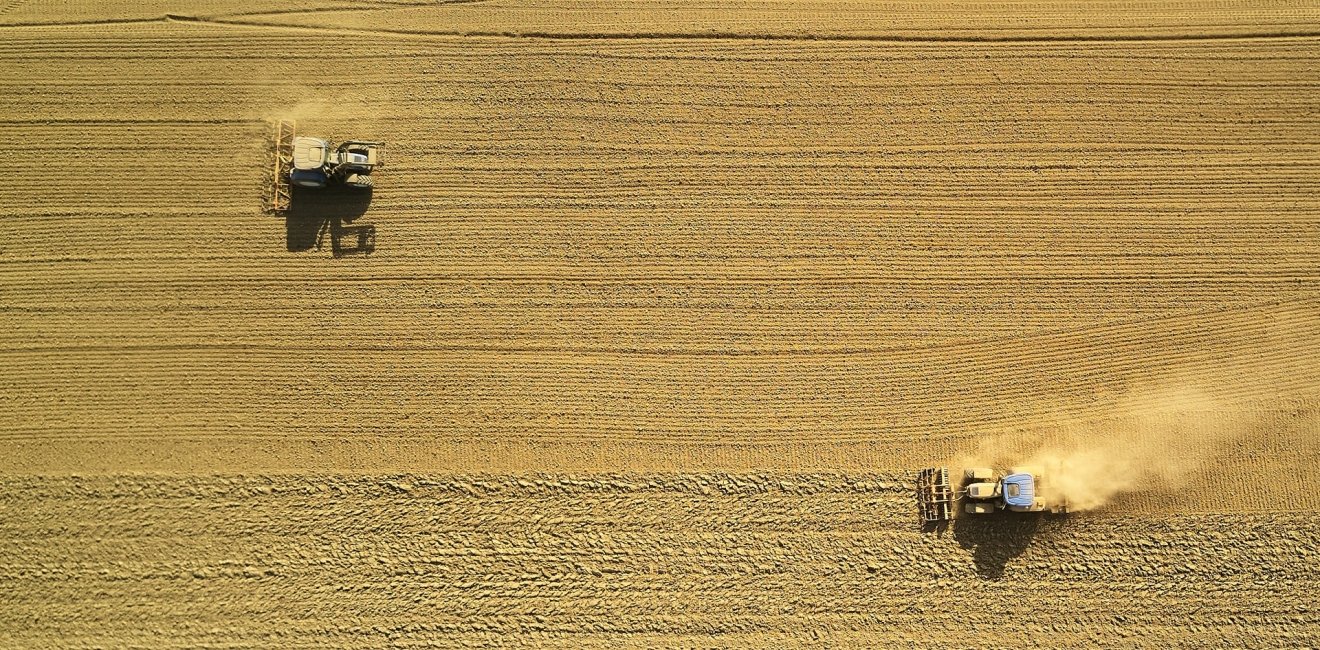
A blog of the Latin America Program
In Soy We Trust
The rain is coming down and the prices are going up and Argentina should be sitting pretty as it watches soy exports swell tax revenues and replenish the country’s depleted dollars reserves.
Only, that’s not quite how it is playing out. Argentina’s strict capital controls, high export taxes and overvalued peso have led farmers to store, rather than sell, their harvested crop. Their hoarding reflects widespread expectations of a steep devaluation. Argentina’s official exchange rate values the peso at more than twice the unofficial rate, and a devaluation would boost the value in pesos of the soy sitting in silobolsas.
That’s all well and good for the farmers, but Argentina’s government, including its central bank, are waiting impatiently for the sale of all that soy. Meanwhile, this isn’t the first clash between a Peronist government and Argentina’s powerful farmers in recent years. In 2008, after President Cristina Fernández de Kirchner hiked export taxes, farmers blockaded highways and stockpiled crops. In response, pro-government vandals slashed silobolsas across the fertile Pampas.
To avoid a similar stand-off, in October, President Alberto Fernández temporarily reduced export taxes by 3 percent to bring more soy to market and open the spigot for dollars to flow into Argentina. So far, however, the yawning exchange rate gap is keeping the soy just where it is.

Author


Argentina Project
The Argentina Project is the premier institution for policy-relevant research on politics and economics in Argentina. Read more


Latin America Program
The Wilson Center’s prestigious Latin America Program provides non-partisan expertise to a broad community of decision makers in the United States and Latin America on critical policy issues facing the Hemisphere. The Program provides insightful and actionable research for policymakers, private sector leaders, journalists, and public intellectuals in the United States and Latin America. To bridge the gap between scholarship and policy action, it fosters new inquiry, sponsors high-level public and private meetings among multiple stakeholders, and explores policy options to improve outcomes for citizens throughout the Americas. Drawing on the Wilson Center’s strength as the nation’s key non-partisan policy forum, the Program serves as a trusted source of analysis and a vital point of contact between the worlds of scholarship and action. Read more

Explore More in Weekly Asado
Browse Weekly Asado
Dengue Haunts South America’s Summers

Lessons from Costa Rica’s Economic Transformation

Women and Latin America’s Digital Revolution


